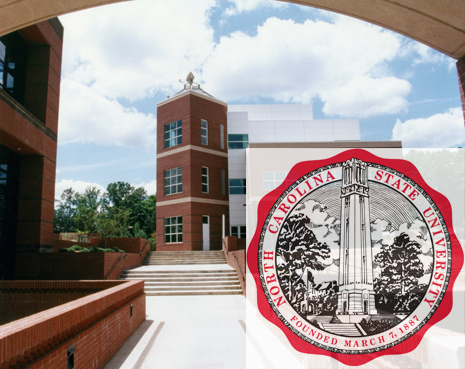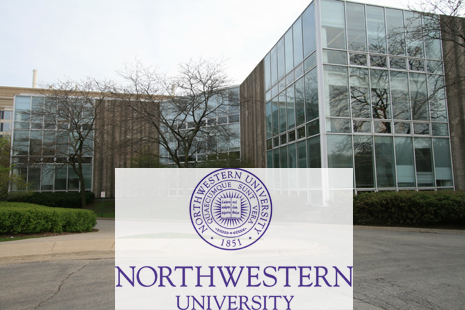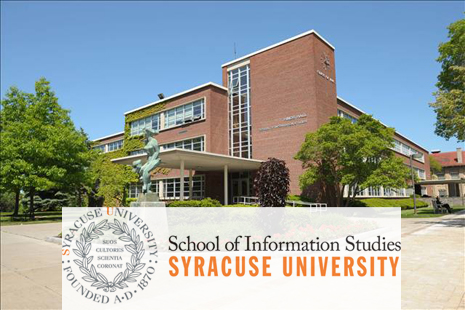
Six Big Name Schools with Big Data Programs
Related Articles Six Super-Scale Hadoop Deployments — How 8 Companies Are Retooling Around Big Data — Big Data Backs World’s Largest Lie Detector — Seven Big Winners in the U.S. Big Data Drive
Analyst groups, companies with a keen eye on hiring, and academic officials are all noting one of the biggest IT hiring trends in recent years—qualified, highly skilled and trained data scientists are in high demand but there are too few candidates who fit the bill.
 As the McKinsey Global Institute reports, there will be a shortage of talent necessary for organizations to take advantage of big data. By 2018, the United States alone could face a shortage of 140,000 to 190,000 people with deep analytical skills as well as 1.5 million managers and analysts with the know-how to use the analysis of big data to make effective decisions.
As the McKinsey Global Institute reports, there will be a shortage of talent necessary for organizations to take advantage of big data. By 2018, the United States alone could face a shortage of 140,000 to 190,000 people with deep analytical skills as well as 1.5 million managers and analysts with the know-how to use the analysis of big data to make effective decisions.
In an effort to address the big data talent shortfall, companies like SAS, EMC, Cloudera and others are offering product-line-specific training programs, but there are still only a relative handful of big name universities that offer tailored big data degrees.
While the short list we’ve compiled here is by no means exhaustive, it represents a cross-section of the types of programs larger universities are offering for students, especially at the Masters or professional level. Whether through targeted certification programs or rigorous, full-time Masters programs, universities are finding ways to reel in students and churn out new data leaders –not to mention boost their own cred as the new big data learning centers.
For now, we have just listed schools in the United States but would love to update the list with your suggestions over the course of the year with international schools and programs that you can vouch for with your own insights….email us with your views.
FIRST UP — #1: Coastal City with a Bold Big Data View…>>>
Related Articles — Six Super-Scale Hadoop Deployments — How 8 Companies Are Retooling Around Big Data — Big Data Backs World’s Largest Lie Detector — Seven Big Winners in the U.S. Big Data Drive — IEEE Tags Top Big Data Trends of 2013
#1 North Carolina State University
Not long ago, Dr. Michael Rappa defined what a data scientist is and what will mark new entrants to the workforce as they seek jobs in this diverse and growing field.

Rappa heads the Institute for Advanced Analytics at North Carolina State University, which just issues its final call for applicants to round out 2013 with an MS in Analytics and has been an early adopter of the view that a future of advanced analytics requires new tailored educational programs that look forward.
From partnerships with North Carolina-based companies like SAS to the proximity of startup hotbeds like Raleigh’s Research Triangle Park, the program is centrally located—and diverse enough to factor in the many areas that comprise data science.
And if nothing else, NCSU knows how to appeal to potential candidates. They recently issued a release stating that record high salary offers have earned the Master of Science in Analytics (MSA) Class of 2012 the distinction of being the most sought-after MSA cohort since the Institute’s inception in 2007.
According to NCSU, “Thirty-eight candidates seeking employment logged a record-breaking 591 initial job interviews with 54 employers during the placement period that started in January—an average of 15 interviews per student. Ninety-seven percent of the Class of 2012 received one or more offers of employment, and most have already accepted their new positions.” They claim that this marks the fifth straight year the Institute will place over 90-percent of its graduates by commencement despite hard economic times. The average base salary offer registered an increase of 10-percent to $89,300
Things are looking for the school. According to NCSU, A lease has been signed for an additional 6,500 square feet of physical space on the fourth floor of the Venture 2 Building, located directly beneath the Institute’s current facility on Centennial Campus.
Construction begins this week to build a classroom, offices and student workspaces to accommodate the Institute’s growth in enrollment in the Master of Science in Analytics (MSA) degree program to 80 students beginning in June. The new expansion will increase the total space occupied by the Institute to 14,500 square feet.
NEXT — #2 Data Mining in the California Sun…. >>>
Related Articles — Six Super-Scale Hadoop Deployments — How 8 Companies Are Retooling Around Big Data — Big Data Backs World’s Largest Lie Detector — Seven Big Winners in the U.S. Big Data Drive — IEEE Tags Top Big Data Trends of 2013
#2 Stanford University
Stanford has opened the doors on its own Data Mining and Applications Graduate Certificate, which they say will are at the heart of successful information and product search, automated merchandizing, smart personalization, dynamic pricing, social network analysis, genetics, proteomics, and many other technology-based solutions to important problems in business.

The Data Mining and Applications graduate certificate introduces many of the important new ideas in data mining and machine learning, explains them in a statistical framework, and describes some of their applications to business, science, and technology. Stanford says that this broad-based approach makes it an appropriate for everyone from strategy managers to researchers in social, medical and scientific fields as well as data analysts.
According to the university, the goal is to churn out a crop of data scientists who are able to use statistical methods to extract meaning from large datasets, develop and use predictive models and analytics, understand and use strategic decision-making applications
Stanford says students can earn the certificate within 9 units for between $10,080 to $11,880 with a 3 year maximum to complete the program (although most students finish within one to two years).
For some, this program has appeal in part due to the partnerships that are provided by the Stanford Center for Professional Development, which is where the certificate is rooted. Students have the opportunity to be on better footing with companies like Cisco and Sony to put their new knowledge to work.
While the program is for the diverse range of professionals stated earlier, they do say that a background in probability and matrix algebra (minimum of one course at the undergraduate level or above and an undergraduate degree with grad GPA of 3.5 or equivalent) is necessary for entry.
NEXT — #3 Data Science in the Windy City….>>>
Related Articles — Six Super-Scale Hadoop Deployments — How 8 Companies Are Retooling Around Big Data — Big Data Backs World’s Largest Lie Detector — Seven Big Winners in the U.S. Big Data Drive — IEEE Tags Top Big Data Trends of 2013
#3 Northwestern University
For those who live in Chicago, there are endless business, financial services and pharma job opportunities—especially when the candidate is backed with an understanding of predictive analytics.

Then again, even if one lives thousands of miles away from the windy city, its Northwestern University still as a program that lives up to the school’s reputation for a challenging academic experience but with the flexibility of remote learning.
According to the organizers of the MS program in Predictive Analytics at Northwestern, the program will enhance students’ capability for data-driven decision making. They say the program will blend concepts in data management, statistical analysis, communication and leadership to train students to become effective analysts and educated consumers of analytics.
Professionals who are heading the program include a former financial services and academic statistician, a seasoned health and social policy leader, an R&D research analyst and SAS expert, and industry pros with backgrounds in marketing analytics and project management.
Northwestern also claims the program will step out of the technology square as well by preparing students with strategic, project-management, and communication skills required in data-driven industries, such as marketing, health care, resource management, finance, and many others.
Like many of the other programs that revolve around data science, Northwestern’s Master of Science in Predictive Analytics program is offered completely online. For those who want the full Chicago campus experience, there is also the full-time Master of Science in Analytics program.
NEXT – #4 New York’s Big Data Education….>>>
Related Articles — Six Super-Scale Hadoop Deployments — How 8 Companies Are Retooling Around Big Data — Big Data Backs World’s Largest Lie Detector — Seven Big Winners in the U.S. Big Data Drive — IEEE Tags Top Big Data Trends of 2013
#4 Syracuse University
The School of Information Science (iSchool) at New York’s Syracuse University is home to one of the few degree programs that specializes in the broader discipline of data science.

The graduate program, which is the only one that has been approved by New York State certification procedures, is still evolving and provides flexibility with classes on location and remotely.
The university says that students will gain the technical and conceptual savvy to be leaders in any industry in 15 credits—half of a masters program but more than a corporate certification can offer. This includes a specialization of data analytics, data storage & management, data visualization or general systems management. Core courses include database, digital curation & management and data science.
As they claim, they hope to “lead the dialogue in defining data science within the academic community and within industry.” University officials say that by taking the first steps into offering a program like this, “students have the rare opportunity to place their fingerprint on the first wave of standards. This will help institutions and affiliates clarify the murky definitions of data science as it infiltrates public consciousness over the next five to ten years.”
The iSchool says that the pool of professionals with this CAS are particularly poised to lead this field. Our students gain hard, technical skills but also possess the soft, theoretical skills that organizations desperately need. There are no details about where the professionals come from in industry or research but the university is holding an information session at its campus later this month.
NEXT — #5 Bright Sun, Big Data….>>>
Related Articles — Six Super-Scale Hadoop Deployments — How 8 Companies Are Retooling Around Big Data — Big Data Backs World’s Largest Lie Detector — Seven Big Winners in the U.S. Big Data Drive — IEEE Tags Top Big Data Trends of 2013
#5 UCSD
The University of California San Diego (UCSD) is offering a certificate program in data mining through its extension school, which will provide coursework and training in basic methodologies and techniques for data mining as well as address advanced methods and applications.

In addition, there are specific courses that cover data mining for scientific applications, a thorough overview of the R statistical programming language, a course on predictive analytics, a SAS crash-course and a course covering text mining.
According to UCSD, “Data mining is a process that uses a variety of data analysis tools to discover patterns and relationships in data that may be used to make valid predictions. Increasing, data mining is becoming a fundamental component of all facets of business commerce, as well as Scientific discovery. This certificate is designed to provide individuals in business and scientific communities with the skills necessary to design, build, verify and test predictive data models.”
At the beginning of this program, students are given an overview course in statistics to lay the groundwork. The university says it will provide a comprehensive introduction to the concepts and techniques of elementary statistics as applied to a wide variety of disciplines. This course emphasizes problem solving, statistical thinking, and result interpretation. Topics include: descriptive statistics, basic probability, probability distributions, sampling distributions, confidence intervals, one and two sample hypothesis testing, categorical data analysis, correlation, and regression.
NEXT – #6 The Quiet One…. >>>
Related Articles — Six Super-Scale Hadoop Deployments — How 8 Companies Are Retooling Around Big Data — Big Data Backs World’s Largest Lie Detector — Seven Big Winners in the U.S. Big Data Drive — IEEE Tags Top Big Data Trends of 2013
#6 Stevens Institute of Technology
Okay, okay… so we said “big name” schools and you’ve never really heard of Stevens….
However, a review of their offerings from computer science to more specific data-driven technology programs yielded the surprise that while they might not be the most recognizable name on the list, they do have a solid program for budding data scientists who can put up with a little East Coast weather.

Stevens Institute of Technology, which spans 55 acres in Hoboken, New Jersey got its start in the late 1870s with a technological focus on both science and engineering as well as management of related projects.
In addition to thriving nanotechnology and multi-scale systems and systems engineering programs, the school is looking forward with a new business intelligence and analytics program. The 36-hour MS program is “designed for part-time and full-time students who have completed undergraduate degrees in science, mathematics, computer science or engineering and are interested in pursuing careers in industry-specific analytical fields (financial, pharmaceutical, underwriting, manufacturing, IT, etc.).
The school claims to be only one of 12 universities in the world to offer the MS in Business Intelligence and Analytics, however, others named in this short list are very similar in terms of the content of their courses and focus areas.
Organizers of the program say that following completion students will be primed with the skills to collect, analyze, and interpret data in the following areas:
• Strategic data planning and management
• Databases/Data warehousing
• Optimization
• Data mining/Machine learning
• Network Analysis/Social networking
• Risk, modeling, and optimization
• BI&A by industry (e.g., pharmaceutical or financial)
The curriculum includes organizational context-driven courses, including financial decision making. Database and warehousing are also key as are those in statistics (multivariate data analysis). Other branches of the MS include the ability to apply what’s been learned to algorithmic trading strategies or life science applications. More to be found here….
NEXT — Is all the program-creation worth it….or is this all a product of hype? >>>>
There’s little doubt that over the next year there will be many more additions to this list of schools with degrees for budding data scientists, which begs the question—is there skyrocketing unmet demand for these folks out there?
Not that it’s a real science itself, but just for fun, type “data scientist” or “big data” into a job search engine like that from Indeed.com and you’ll find that all talk about the talent shortfall is indeed true.

And then, take a look at this one with a variation on the job title but focus on the same type of degree program these schools are taking on….

Help us add to the list when we update this article later in the year. Send your reviews or opinions about new and existing programs in data science to [email protected]
Related Stories
7 Big Winners in the U.S. Big Data Drive
Hadoop Events Crowd 2012 Calendar
Shot in the Arm Coming for Big Data Startups


























